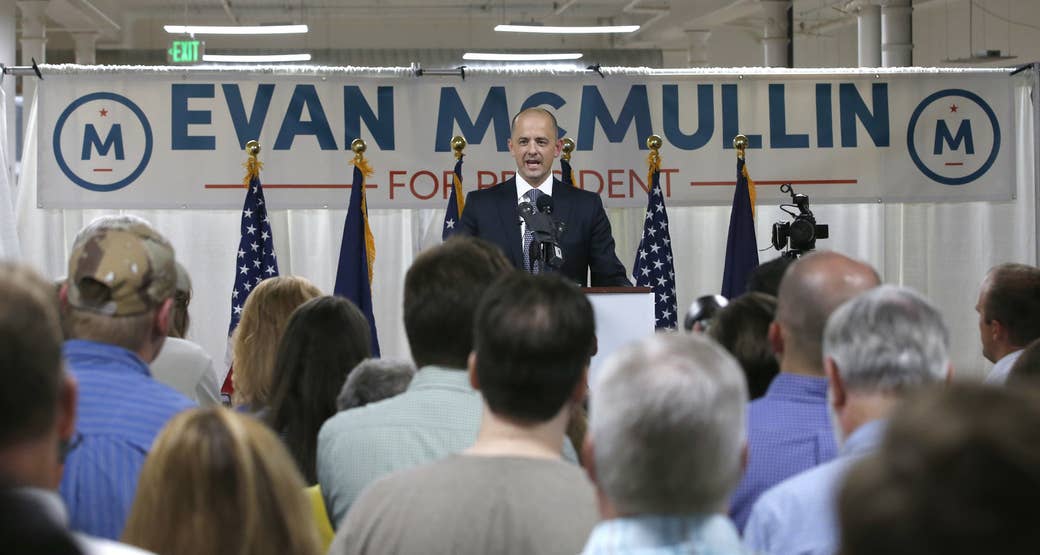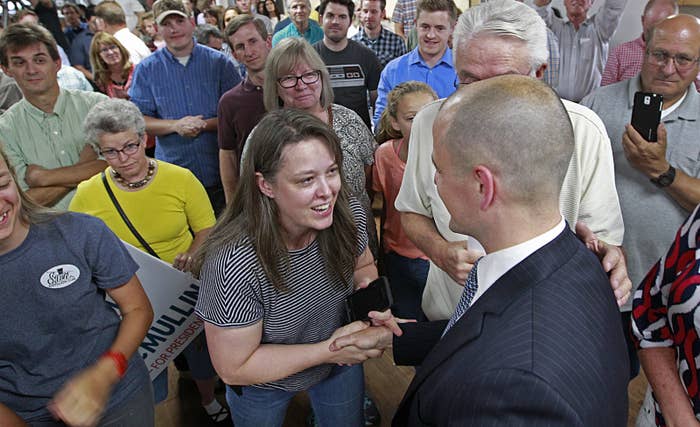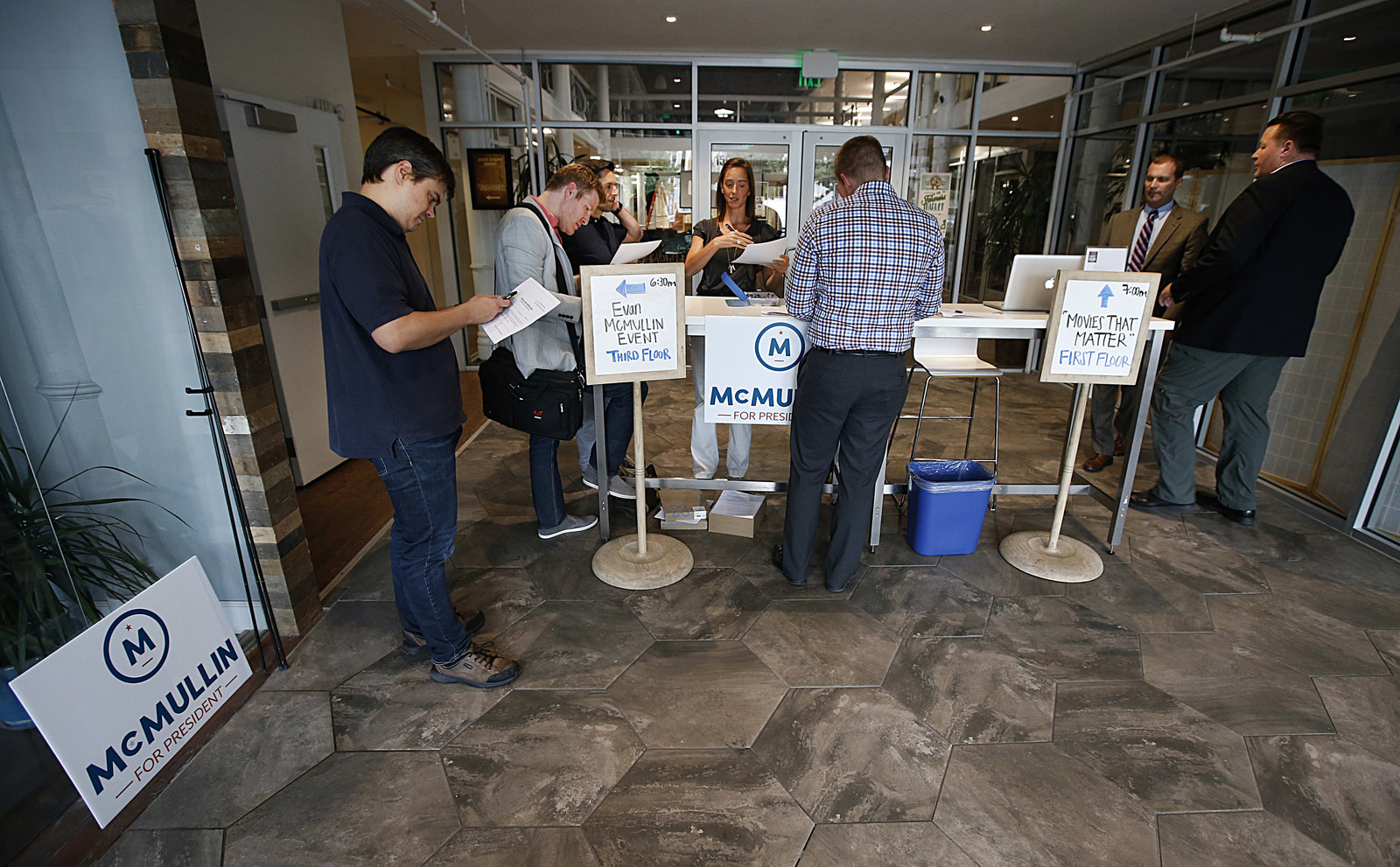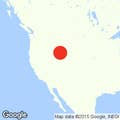
SALT LAKE CITY — Evan McMullin sat at a conference table in his modest campaign headquarters here one morning last week, struggling to pick which high-profile Republican had most disappointed him this year.
"Can we just say 'all of the above'?" he asked, prompting giggles from the aides scattered throughout the room.
In McMullin's view, the Republican Party's wide-scale surrender to Donald Trump in 2016 had produced too many pathetic failures to rank. “I mean... some of these people said Trump was a fraud and a con man."
At this, Mindy Finn, a former Republican consultant now serving as McMullin's running mate, chimed in from the other side of the table: "Some of them, Trump said their father was involved in killing JFK..."
McMullin replied, "Some of them had their own wives attacked by Donald Trump." The two volleyed back and forth like this for a while, clearly enjoying the game, and then McMullin got to the point.
"How is it that these people are now supporting Donald Trump for president?" he asked. "And what does it say about the Republican Party's ability to offer leadership to this country?"
Bald, wiry, and barely 40, McMullin is not a bomb-thrower by nature. He is polite and mild-mannered, and speaks in the earnest cadence of a Mormon missionary asking for permission to come inside and share a brief message about Jesus. As a Capitol Hill policy wonk, McMullin was a loyal cog in the Grand Old Party until he quit his job in August to launch a presidential protest bid under the #NeverTrump banner. Initially, he said, his campaign was intended as a vehicle of reform, meant only to remind the GOP of its conservative principles. But now, in the final weeks of this havoc-wreaking election, McMullin is scanning the wreckage of the Republican Party, and wondering whether there's anything left to salvage.
"Obviously, it's important to put pressure on the party to make critical reforms," he said. "But candidly, I am really skeptical that that can be successful within a generation." He has become increasingly convinced that the rise of Trump "is just a symptom of a greater disease in the party" — one that can't be cured "within the existing infrastructure."
The candidate's recent surge in state polls here has plunged Utah into an unpredictable three-way race — a unique electoral phenomenon that's attracted a national wave of media attention. If he wins the state, he will become the first independent candidate to be awarded electoral votes in nearly half a century.
But McMullin and his campaign are attempting something much more audacious than a fluke victory in a single state. While no one was watching, they were building an entirely new political party in the desert — and they don't plan to stop when Trump loses.

When McMullin first entered the race in August, he was much more circumspect in his criticism of Republicans. Speaking to BuzzFeed News at hotel bar in midtown Manhattan a few hours after announcing his long-shot bid, McMullin sipped Diet Coke and politely dodged questions about his party's appeasement of Trump. Paul Ryan, he said, was "in a tough situation." The former primary candidates who had lined up behind their nominee simply lacked a better option. Ditto the donor class that was filling Trump’s campaign war chest.
McMullin says now that when he set out, he felt obliged to give his fellow Republicans the benefit of the doubt. "I believed they deserved another chance, especially given that there was now a true conservative in the race,” he said. “I think what we naïvely expected is that we might have the support of some of the Republican establishment.”
Instead, McMullin spent the next two and half months listening to frightened lawmakers and calculating donors apologetically explain why they couldn’t break with Trump — a party paralyzed by fear and careerism.
“They’re terrified,” said Rick Wilson, a senior McMullin adviser. “They tell us in meetings, ‘Trump is disgusting, he’s loathsome, he’s terrible for the party, he’s destroying the republic,’ blah blah blah…” — here, Wilson adopted a whiny-toddler tone —“’But I’m scared I can’t say anything because [Trump’s] people might hurt me.’”
“I have seen and worked with a lot of very courageous people in my time,” said McMullin, who spent 11 years working for the CIA. “I have seen a remarkable display of cowardice over the last couple of months in our leaders.”
For him, these craven capitulations have highlighted the need for a new center-right party in American politics — and he’s not alone. A growing chorus of conservative commentators — repulsed by Trump and wary of Trumpism’s spread in the GOP— has begun publicly musing about secession. On ABC’s “This Week,” National Review writer Jonah Goldberg predicted that if Trump continues to exert his toxic influence after Nov. 8, “we are going to see a new party emerge.” In the Wall Street Journal, columnist Bret Stephens wrote, “If I can’t get my Grand Old Party back, I’d rather help build a new one.” Perhaps unsurprisingly, McMullin’s most high-profile endorsements have come from people of this ilk, like Weekly Standard editor Bill Kristol and talk radio host Erick Erickson.
But of course, 2016 has been a bad year for the kind of wisdom that emanates from green rooms and op-ed pages. And even among anti-Trump conservatives, there is deep skepticism about the prospects of a new third party. (One Republican consultant who plans to vote for McMullin called the idea “crazy.”) What’s more, McMullin’s success in Utah — while unprecedented — has been dismissed by many as a case of Trump-averse Mormon voters simply supporting one of their own.
But McMullin’s team of disaffected Republican strategists is adamant that they’re building something to last beyond this election cycle.
According to his advisers, they’ve assembled serious state organizations across the country on a shoestring budget, enabling them to hustle their way onto 11 state ballots in the space of just 10 weeks. As Trump’s candidacy has imploded, McMullin has sought to take advantage with campaign stops throughout the Mountain West, where he’s often been greeted with large crowds and armies of eager volunteers.
With a bit more time and money (and, perhaps, some slightly less obscure candidates), McMullin’s team believes they could mount competitive campaigns in states and districts all over the map. “We think there’s actually a very vibrant market for our message in the urban northeast and in parts of the south,” said Wilson.
But it is still deep-red Utah where this project could have the most disruptive long-term implications. Sources close to the state party here said Republican officials have watched McMullin-mania with growing alarm. For Trump to lose the most conservative state in the country would be humiliating enough — but a sustained challenge from local third-party candidates modeled after McMullin could pose a much greater threat going forward. Already, Trump’s candidacy has taken a toll on the GOP’s hold on its Mormon constituency: A Pew survey released last month found that fewer than 50% of Latter-day Saints now identify as Republicans.
“Look, if we believed that we could be the force that reforms the Republican Party, we would,” said Wilson. “But you can’t have a conservative movement at home in a party where a meaningful fraction of it is defined by Trumpism.”

People began trickling into the suburban school gymnasium outside Salt Lake City just before dusk: Young dads toting diaper bags, wholesome teenagers in BYU T-shirts, and a seemingly endless parade of bouncy toddlers. By the time McMullin finished his backstage press conference — where he took questions from a gaggle that included reporters from Norway and Japan — the audience waiting to greet him had grown to nearly a thousand people.
His speech was not exactly a barnburner, but the crowd was unbridled in its enthusiasm anyway. They cheered when he ticked off his support for traditional Republican causes — pro-life, pro-trade, hawkish on foreign policy— and they cheered even louder when he took on the failures of the current Republican Party. He called for a “new conservative movement” that welcomed Muslims, immigrants, and “people who don’t look like me.”
Ellie Cohen, a recent college graduate who brought her mother to the rally, grew up a staunch Republican, but said that if the GOP doesn’t purge its Trumpian elements after the election, she’ll have to leave the party for good.
“I think that’s the really amazing thing that’s happening in Utah,” Cohen said. “We’re showing the country that we’re not willing to just vote straight Republican if the candidates aren’t representative of who we are … We are going to vote based on our values and morals, not based on party.”

